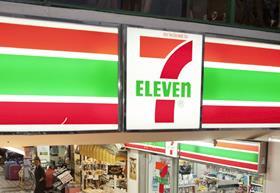
Multinational retailer Dairy Farm Group’s food division reported a drop in underlying profit in 2015 due to the “challenging” operating environment across Asia, according to Inside Retail Asia.
Food (excluding the Yonghui China business in which Dairy Farm acquired a 19.99 per cent stake during the year) reported US$8.2bn in sales, a decrease of 2 per cent, while operating profit declined by 21 per cent to US$236m principally driven by disappointing results for supermarkets and hypermarkets in Singapore and Indonesia, the report said.
In Indonesia, profitability declined significantly as a result of higher labour costs, price investments to drive customer traffic and changes associated with more rigorous stock management, CEO Graham Allan told the publication.
In Singapore, “further margin erosion resulted from higher labour costs and rents, soft consumer sentiment, a weaker Singapore dollar” and intense competition in the supermarket sector, he said.
“Operating profit was significantly lower than in 2014, mainly due to lower margins from Cold Storage’s price campaigns, a store rationalisation programme and operational challenges. In a difficult segment, Giant ended the year with improvement in both sales and profits.”
But Allan said Wellcome supermarkets and 7-Eleven convenience stores in Hong Kong traded well, and Wellcome Taiwan also delivered encouraging results with its targeted focus on upscale customers.
In Hong Kong, despite a competitive trading environment and declining mainland visitor traffic, Wellcome achieved gains in both sales and market share, he said.
In mainland China, 7-Eleven showed further improvement despite the market slowdown. But Allan says in 2016, the group will optimise its product offer with improved fresh items and ready-to-eat meals, with the aim of growing market share, boosting stock management capability and fine tuning brand positioning.”
In Malaysia, the introduction of GST in April and weak consumer confidence dampened retail spending and profitability.
“Post-GST consumer apprehension, currency weakness, lower subsidies and political uncertainty brought consumer sentiment to its lowest point in 10 years and negatively impacted sales in the remainder of the year.
“Nevertheless, improved retail execution, assortment enhancements and tactical investments in margin to improve price perception have helped to maintain sales in a soft market,” said Allan.
“In the Philippines, the upscale and community supermarkets reported sales growth, while hypermarket sales were slightly positive. The group opened three new Rustan’s and three new Wellcome stores, and ended the year with 56 outlets. Enhancing the quality and breadth of the fresh offer, embracing more impactful merchandising and display practices and building corporate brands are central to the group’s plans for 2016.”



